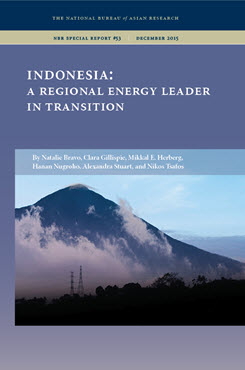Indonesia's Energy Policy
Challenges and Opportunities
This essay details Indonesia’s existing approach to its energy policy challenges, examines recent action taken by the current administration, and offers recommendations for public policy.
EXECUTIVE SUMMARY
This essay details Indonesia’s existing approach to its energy policy challenges, examines recent action taken by the current administration, and offers recommendations for public policy.
MAIN ARGUMENT
The central energy policy challenge for Indonesia is meeting rising domestic energy demand. There is no shortage of natural resource potential to supply this rising demand, but greater policy coordination and investment are needed in order to boost production of all energy resources if Indonesia wants to avoid becoming a net importer of energy. To this end, President Joko “Jokowi” Widodo has made it a priority to place reformers in key policy positions, and the government has adopted a national energy policy that focuses on strategies and tools for addressing concerns that hinder energy sector investment. There are, however, a number of structural and policy challenges that continue to complicate further progress. The biggest challenges include persisting energy subsidies, a lack of infrastructure, the regulatory environment, corruption, and ongoing questions about economic nationalism.
POLICY IMPLICATIONS
- Proposed targets for how Indonesia can meet rising energy demand while sustaining the country’s environmental outlook are remarkably ambitious. In order to meet the country’s targeted energy mix for 2025, natural gas and coal use must more than double and renewable energy use must increase ninefold.
- Jokowi’s push for the creation of a “one-stop shop” for investment licenses within the Indonesian Investment Coordinating Board is a step in the direction of streamlining regulatory processes to make investing in Indonesia’s energy sector easier. Yet it remains to be seen whether this initiative goes far enough in addressing investor concerns.
- Indonesia’s National Energy General Plan (RUEN) was expected to be finalized and released by October 2015; however, it has yet to be officially released or made available online in draft by the government as of late November 2015. The timely release of the RUEN would go a long way toward providing further indication of how the government plans to effectively implement its national energy policy.
Alexandra Stuart is the Director for Indonesia, Energy and APEC at the US-ASEAN Business Council.


